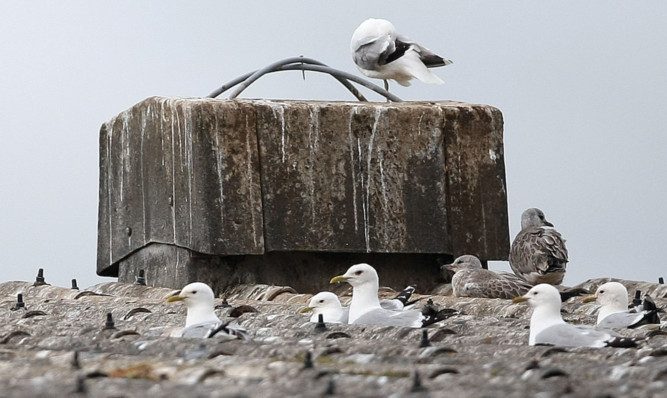A Perth businessman is demanding a cull after claiming more than 100 nesting seagulls are creating a “major” problem.
Phil Stewart, 53, who owns the Active Service Ltd garage at Inveralmond Industrial Estate on the outskirts of Perth, said he has to spend £1,500 per season on hiring a hawk to contain the seagulls, which have attacked some of his staff.
He described the situation as “unbelievable”.
Mr Stewart claims he has witnessed more than 100 birds “swarming” and stated many buildings in the vicinity, plus cars his staff have serviced, are being “covered” in excrement.
“Something needs to be done about this but the council have just washed their hands of it,” he said.
“I feel they have a lackadaisical attitude to this and that there should be a cull on the seagulls.”
He continued: “The other day I counted 50 seagulls with chicks on the roof of a neighbouring building. They were all very aggressive and I’ve had my staff swooped on by the birds.
“We are utilising the services of a harris hawk along with other businesses at a cost of £1,500 each, which is operated on a rota basis.
“This situation is a health risk to the public and staff in the area. I feel Perth and Kinross Council … need to pick up the costs to cover the damage and danger caused.
“I am very proud of my business and try to keep my property in tip-top condition at all times. Unfortunately the unit the seagulls are nesting on is rented and the council have advised me I should contact the landlord yet again avoiding the issue.”
A spokesperson for Perth and Kinross Council, said: “The council does not have a statutory duty to take action against gulls. It is illegal to capture, injure or destroy any wild bird or interfere with its nest or eggs.
“There are some simple solutions that all property owners can undertake to deter gulls from causing a nuisance. Ensuring that all food is securely disposed of will encourage gulls to look for food elsewhere.
“Also, working with neighbouring property owners to discourage gulls landing on premises by using mechanical means, such as netting, wires or bird spikes, will help to reduce the gull population in the area.”
